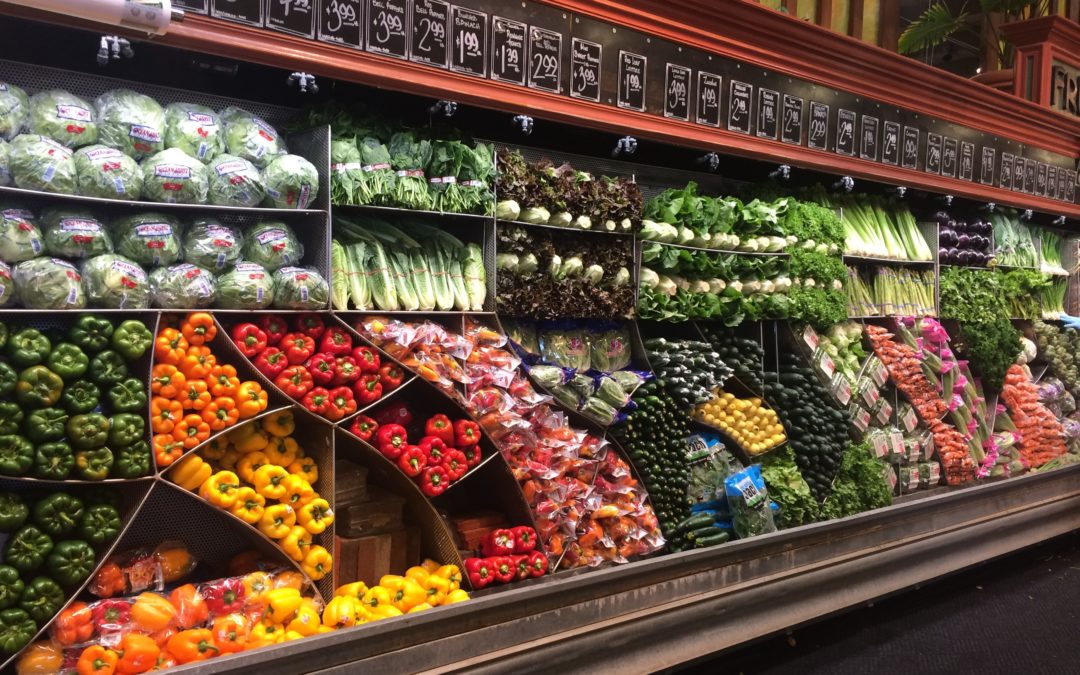The Polish government is considering launching its own state-owned chain of grocery stores to support Polish agricultural producers and to help keep down prices for consumers, according to two ministers. Yet experts warn that such a retailer could prove too “sluggish” and make life more difficult for private competitors.
“A state-controlled chain of stores would certainly complement what we are working on,” Artur Soboń, a deputy minister of state assets, told Money.pl, a financial news website, on Thursday. “We would be present from field to table.”
Soboń made clear that there was no plan to completely nationalise the sector, as that would be “unrealistic and unnecessary”. However, “we want to be present where we are able to ensure profitability of production for farmers in the long term”.
Soboń’s comments were then echoed on Friday by deputy minister of infrastructure Marcin Horała. Speaking to TVP Info, the deputy minister explained that the “investment idea” entailed a market entity which would pay farmers “fair prices” as well as offering products to Polish shoppers at “reasonable” prices.
The store would “not dominate the market”, reassured Horała. “But if it appears on the market, then other entities will have to adjust to the [new] rules of the game. They won’t be able to raise food prices offered to consumers,” he added.
Poland has this year recorded some of the highest inflation rates in the world, and is the only EU country where inflation is forecast to increase this year. Inflation has been driven in particular by food prices, with Polish farms warning that the triple blow of drought, early frosts and lack of migrant workers will see further increases.
The ministers provided little detail about the plans for a state-owned grocery chain, but both implied that, rather than building a new network from scratch, the government would consider taking over an existing one.
Horała suggested that, amid the economic slowdown, some companies “may be sold at a discount”. Meetings about potential acquisitions have been planned for next week, according to Money.pl.
Yet the project has not been met with enthusiasm from retail experts. Wojciech Kruszewski, former president of the supermarket chain Lewiatan, told Money.pl that he was sceptical about the idea.
“We know perfectly well how state-run companies operated in the past,” he said. “Trade requires flexibility, and a state-owned company can be ‘sluggish’ – it cannot keep up with the competition.”
Andrzej Maria Faliński, president of the Economic Dialogue Forum Association, told Business Insider that it was “not a good idea” to enter the retail and wholesale trade with public money. “This will make it more difficult for other market participants – especially the smaller ones – to access funds,” he explained.
“This will introduce an additional competitor with huge costs, burdened by political and image-related obligations. It will be a company with great clout, robust political support, and it will drain some bank funds,” added Faliński.
Last year the government had already announced plans to create a National Food Retail Holding, which would consolidate a number of companies in the agri-food sector, with a leading role for the National Sugar Consortium (KSC), with the aim of supporting Polish food producers.
In mid-May, the government confirmed that KSC had signed an agreement with KPMG, an advisory firm, to help with preparing and implementing the consolidation, reports Dziennik Gazeta Prawna.
In recent years the government has made wider moves towards increasing state ownership of the economy, including buying back banks and large companies from foreign investors. After the current Law and Justice (PiS) government came to power in 2015, Polish ownership of banks’ shares surpassed 50% for the first time since 1999.
In recent months, the government has also been encouraging “economic patriotism”, especially with the creeping economic fallout caused by the coronavirus pandemic.
In April, President Andrzej Duda launched the “Consciously Buy Polish Products” (Kupuj świadomie produkt polski) campaign, asking shoppers to pay attention to where products come from, and to prioritise buying Polish ones. Later that month, the agricultural ministry published a black list of “unpatriotic” firms that were importing milk products and “thus limiting sales from Polish farmers”.
Earlier this week, the state consumer protection office, UOKiK, announced that it was investigating one of Poland’s largest supermarket chains, Portugese-owned Biedronka, for selling foreign produce wrongly labelled as Polish. This could have misled “patriotic consumers”, said the head of UOKiK.
Main image credits: Vicki Moore/Pexels

Juliette Bretan is a freelance journalist covering Polish and Eastern European current affairs and culture. Her work has featured on the BBC World Service, and in CityMetric, The Independent, Ozy, New Eastern Europe and Culture.pl.




















